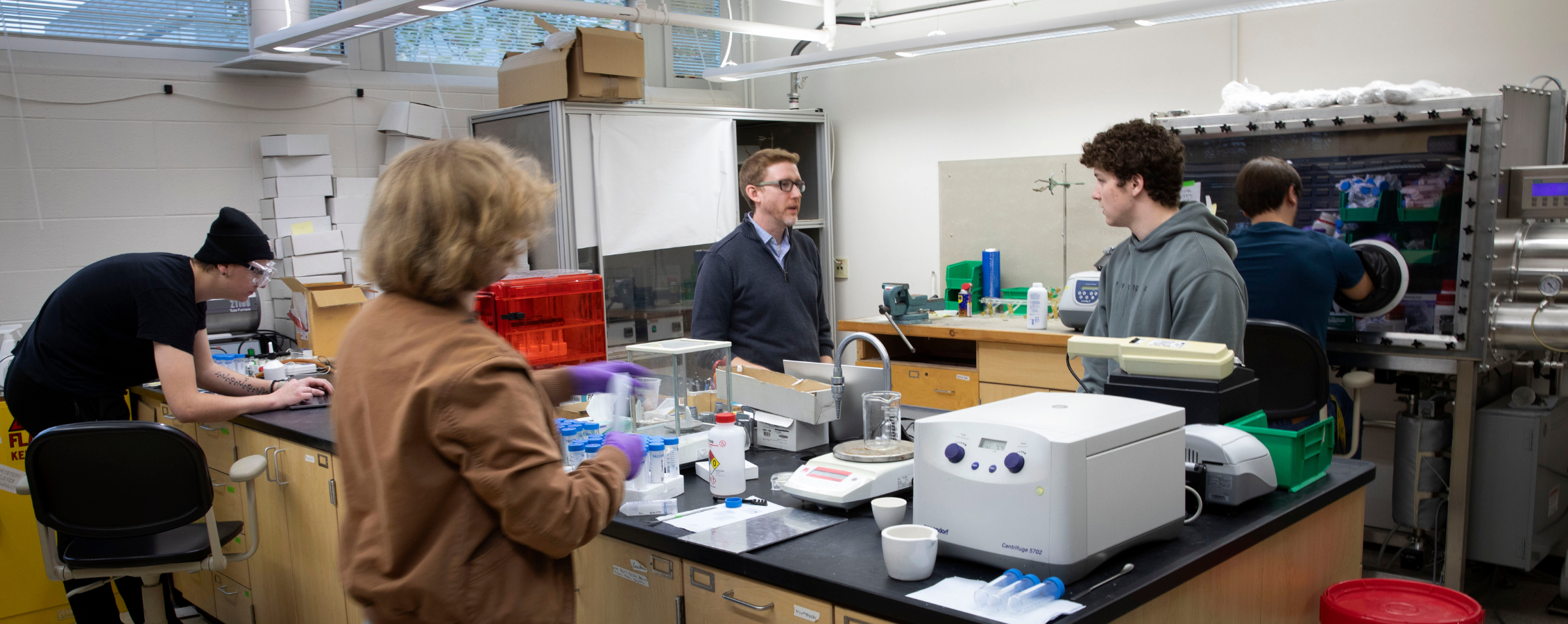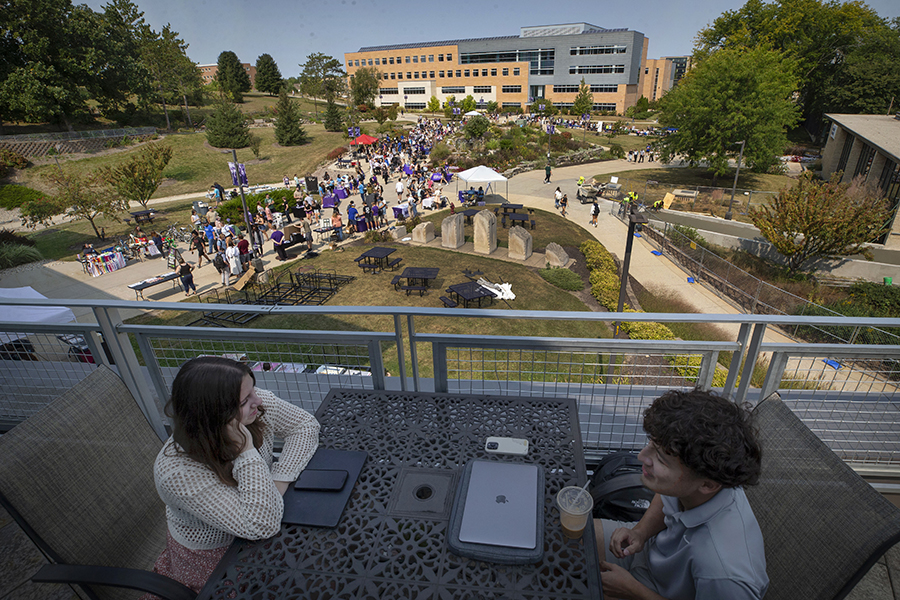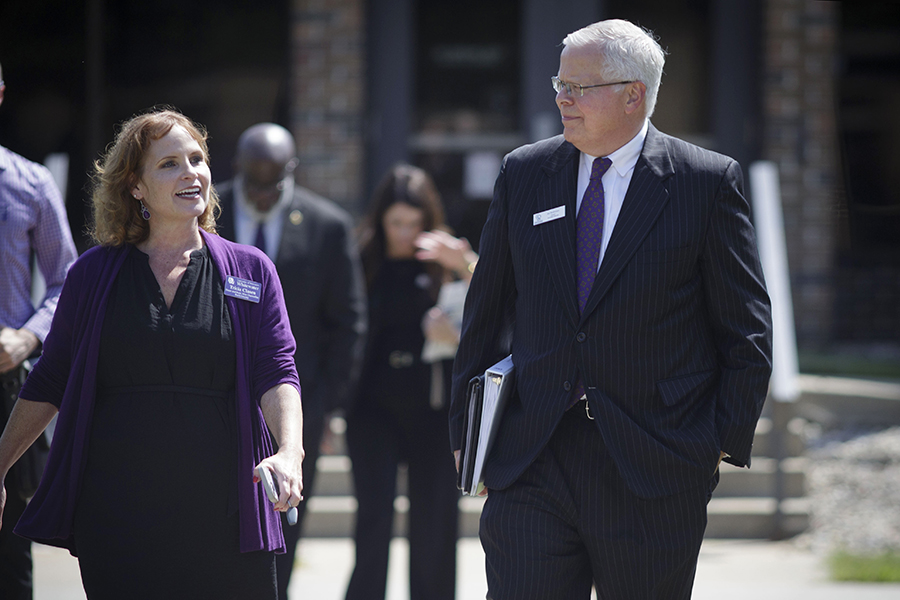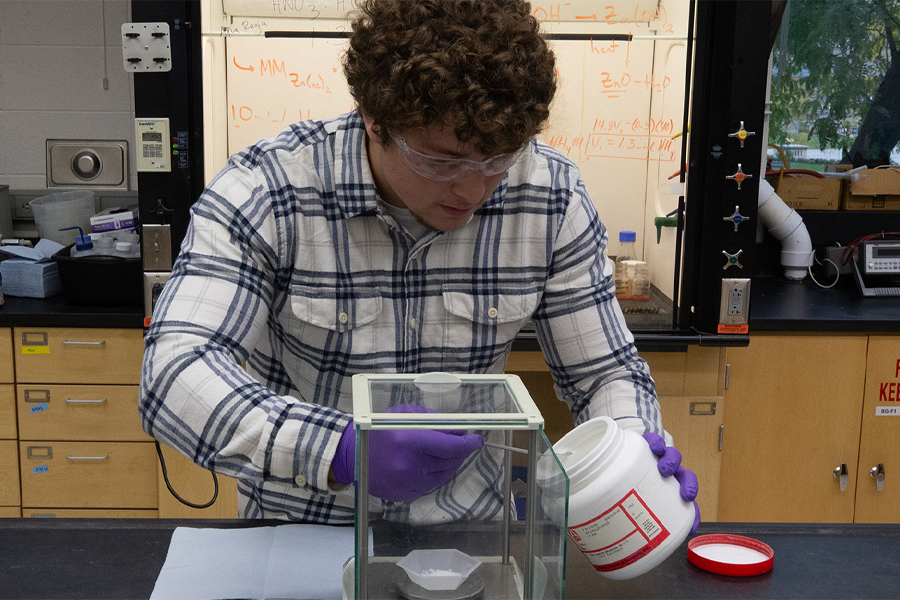UW-Whitewater chemistry professor earns UW Innovation Grant
January 30, 2025
Written by Chris Lindeke | Photos by Craig Schreiner
One chemistry professor at the University of Wisconsin-Whitewater rang in the new year with a surprise.
In early January, Steven Girard, an associate professor of chemistry, was announced as one of three recipients of the 2024 Universities of Wisconsin Innovation Grant for his proposal, “’Sea-Change’ Silicides: Superalloy and Biomedical Coatings from Sustainable and Recycled Feedstocks.”
It was a surprise, but a really nice one,” Girard said of receiving notification about the grant in early January. “I’m so excited that we are now going to have some unique opportunities for our students to be able to do this research.”
By receiving the grant, which totals $175,000 over two years, Girard is also a finalist for a “big idea” award to receive additional funding totaling up to $400,000 distributed over three years.
“We are proud of Dr. Girard and our students who will engage in research that will potentially transform lives.” said Chancellor Corey King. “We have the resources at UW-Whitewater and in our community to support this grant — including a robust undergraduate research program and a community of entrepreneurial partners. The end goal is to develop a successful path forward resulting in a game-changing product into the market.”

Nick Barmore, right, a chemistry student from Evansville who is working on an undergraduate research project with Steven Girard, left, associate professor of chemistry, has been awarded $4,000 for his ongoing research on sensor materials. The grant comes from NASA and the Wisconsin Space Grant Consortium (WSGC). He is shown in Girard's lab on Wednesday, Oct. 25, 2023.
Working with several partners in the area, including the Whitewater University Innovation Center, Girard’s research looks to build technology that would produce better, more cost-effective coatings for superalloys used in aerospace that are exposed to high temperatures and for bioactive coatings for medical implants.
“Using a new technology developed at UW-Whitewater, this proposal could lead to improvements in coatings used in the aerospace and medical device industries,” said Universities of Wisconsin President Jay Rothman. “The City of Whitewater’s Innovation Center will be the perfect location for start-up lab space to test commercial marketability.”
Girard’s goal is to infuse the technology into biomedicine and onto spacecraft. He is working with WiSys, which helped him recently land a U.S. patent for bioactive glass-silicide coatings for osseointegratable metal implants, to investigate other places where the silicides could be used.
“The end game would be to have a technology that makes a difference in the lives of people in Wisconsin, in our country, and maybe, the world,” Girard said. “I would be curious to see (…) if we could develop a company that would be sustainable both economically as well as with the use of materials and energy.”
Undergraduate researchers will play a central role in most — if not all — objectives of the grant, Girard said. He sees numerous opportunities for student involvement both in fundamental research and outside of the lab. For example, students in UW-Whitewater’s integrated science and business major could assist with the business side of the project.

Steven Girard, associate professor of chemistry, front, and students Beto Luna Patino and Nicholas Barmore take a moment to admire the Capitol dome. Students from the Whitewater and Janesville campuses presented their undergraduate research projects at the Wisconsin Universities Research in the Rotunda at the State Capitol in Madison on Wednesday, Mar. 6, 2024.
“If we’re going to be doing any amount of research, it’s imperative that we include our students,” Girard said. “All of the work that enabled me to get this grant was accomplished by undergraduate researchers in my lab over the last couple of years. That’s something I’m incredibly proud of and will continue in this grant.”
The Whitewater University Innovation Center, which brings the university and the City of Whitewater together to enable new businesses within the community, will provide start-up lab space, networking opportunities with key stakeholders, and strategic consultation for business operations, management, marketing and sales.
CaP Biomaterials, a biomaterials manufacturer based in East Troy, will serve as an experienced business resource within the larger biomaterials marketplace. Girard and his team will work with UW-Madison’s Department of Neuroscience to assess the biomedical utility of the coatings and connect UW-Whitewater students to research and graduate programs.
The winner of the Universities of Wisconsin “big idea” award will be revealed following the expiration of the Innovation Grant.




